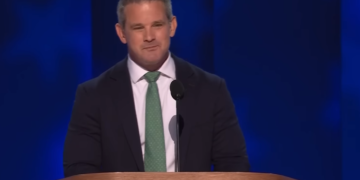For over a decade, Vice President Kamala Harris has been a staunch advocate for Black, Hispanic, and low-income communities disproportionately affected by pollution, a segment of the environmental movement that has sometimes felt sidelined by broader political agendas. Her consistent focus on environmental justice—an approach that intertwines social equity with green policies—has the potential to galvanize grassroots support among Democrats and independents as the 2024 election approaches.
Harris’ advocacy work is not without controversy. Her emphasis on equity has drawn criticism from Republicans, who argue that her policies favor certain groups over others, particularly in disaster response scenarios. For example, after Hurricane Ian struck Florida in 2022, Harris faced backlash from GOP figures like Senator Rick Scott for her comments on prioritizing aid based on equity. Critics claimed she was advocating for racial preferences, although analyses of disaster aid distribution revealed that the majority of funds went to predominantly white areas.
Despite the criticism, Harris has played a pivotal role in shaping the Biden administration’s environmental justice policies. She was instrumental in securing $15 billion to replace lead drinking water pipes through the bipartisan infrastructure law, addressing a health crisis that disproportionately affects marginalized communities. Her legislative efforts, such as the Climate Equity Act and the Environmental Justice for All Act, have aimed to ensure that communities historically burdened by pollution benefit from federal investments.
Harris’ deep-rooted commitment to environmental justice, shaped by her background and early career as San Francisco’s district attorney, resonates with many in the movement. As the 2024 election draws closer, her track record may not only rally support from key demographics but also distinguish her from President Biden, offering a glimpse into how a Harris-led administration might prioritize environmental justice issues even further.
However, Harris faces the challenge of broadening her appeal beyond Democratic circles, particularly in an economy where environmental justice might not be the leading concern for many voters. Her ability to connect these issues with economic benefits, such as job creation through infrastructure projects, could be crucial in winning over undecided voters in pivotal swing states.
In summary, Kamala Harris’ long-standing advocacy for environmental justice is likely to play a significant role in the upcoming election, potentially mobilizing a diverse coalition of supporters while also navigating the complexities of broader public opinion and political opposition.




























